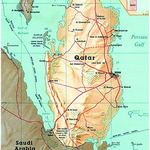Since its inception in 2020, Qatar FinTech Hub (QFTH) has been at the forefront of fostering the FinTech ecosystem in Qatar, providing support to over 100 FinTech startups both directly and indirectly.
As a key initiative managed by Qatar Development Bank and supported by the patronage of Qatar Central Bank and in close partnership with Qatar Financial Center, QFTH serves as a one-stop-shop for FinTech-related activities in the country, aligning with both the National FinTech Strategy and the Qatar National Development Strategy.
QFTH’s FinTech Incubation & Acceleration (FIA) programs have demonstrated a strong commitment to nurturing innovation, with a Pre-Seed Investment exceeding USD 9 million in 70 FinTech startups from 28 different countries. Moreover, QFTH has allocated over USD 16 million for Pre-Seed Investment (from FY 2020 to 2028) to support an additional 50 FinTech startups over the next five years.
Qatar has made significant strides in building a sustainable and competitive FinTech ecosystem. The journey began with establishing the Qatar National FinTech Taskforce in 2017, followed by the launch of the National FinTech Strategy in 2019 and the Qatar FinTech Hub (QFTH) in 2020. Qatar’s FinTech sector has rapidly advanced through its national strategy, supported by enabling regulations and dedicated innovation hubs. Key achievements include a 581% surge in FinTech funding in 2024, the successful implementation of a regulatory sandbox, and the expansion of digital transaction payments projected to reach $8.5 billion by 2030. These efforts position Qatar as a growing regional FinTech hub aligned with its Vision 2030 goals. In 2023, Qatar Central Bank (QCB) introduced an updated FinTech Strategy to drive further innovation and diversification. Qatar hosted the Web Summit in both 2024 and 2025. As the world’s largest technology conference, the event further reinforced Qatar’s position as a hub for digital innovation. During the event, Startup Qatar, an initiative of Invest Qatar, was launched to support startups, attracting over 500 firms and awarding $18 million in funding to 15 global startups. FinTech startups ranked among the top five clusters of registered firms, highlighting the sector’s strong momentum.
The global FinTech landscape is undergoing rapid transformation, with revenues projected to surge fivefold by 2030, driven by innovations like digital payments lending, Artificial Intelligence (AI), cryptocurrency, Insurance Technology (InsurTech), and financial inclusion, and supported by evolving regulations. Digital adoption is accelerating globally, with consumer behaviour shifting toward mobile-first financial services. In mature markets like North America and Europe, FinTech continues to grow in areas like digital banking. Meanwhile, emerging markets are rapidly catching up, fueled by a digitally savvy young population, expanding internet access and a rising middle class. The growth potential in the Asia-Pacific (APAC) region is noteworthy. Similarly, Latin America (LATAM) and Africa are seeing fast growth, with revenues projected to rise. In the Middle East, particularly in Qatar, FinTech is gaining momentum. Qatar’s investments in digital infrastructure and regulatory frameworks are driving innovation, positioning it as a key player in the FinTech space. As these trends continue, FinTech will reshape financial services globally, creating new opportunities and challenges.
While Islamic FinTech is not yet a mainstream trend in global markets, it is rapidly gaining traction, particularly in Asia and the Middle East. This growth is driven by rising demand for Sharia-compliant financial solutions, a broader shift toward ethical finance, increasing alignment with the environmental, social, and governance (ESG) principles, and supportive government policies.
Islamic FinTech not only provides financial inclusion for underserved segments but also represents a differentiated value proposition that blends innovation with ethical financial practices, making it well-positioned to compete globally and contribute to sustainable economic development.
In 2023-2024, the estimated global Islamic FinTech market size stood at $161 billion, accounting for just 1.4% of the global FinTech market, based on transaction volumes and assets under management. This indicates substantial potential for growth and innovation.
The global Islamic FinTech market is projected to grow at a compound annual growth rate (CAGR) of 17% between 2024 and 2028, reaching approximately $306 billion. This growth is fueled by demand for Sharia-compliant financial services, government support and accelerated digital transformation in key markets.
Alternative finance, payments, wealth management, raising funds, deposits and lending are the top five subcategories that are dominating the growth of Islamic FinTech.
Progressive Islamic FinTech regulatory frameworks
Buy-Now-Pay-Later (BNPL) models are being tested and scaled under ethical finance guidelines.
Tokenization is central to the 2024 QFC Digital Assets Framework, which sets legal grounds for smart contracts and custody, supporting QFC and QFCRA’s digital asset ecosystem. Integrated government pathways
The QCB Sandbox allows for live-market experimentation under regulatory oversight, with a clear progression pathway to licensing.
The QFC offers FinTech-friendly legal and tax frameworks, fast-track licensing and 100% foreign ownership, facilitating easier market entry and scale for regional and global players. Catalysing private capital
QIA’s first venture capital Fund of Funds is a strategic initiative aimed at enhancing Qatar’s venture capital ecosystem by attracting top-tier VC firms and entrepreneurs. It also seeks to generate a multiplier effect that supports the growth of early-stage FinTech and Islamic technology startups.
Structured startup enablement: From idea to scale
Unlike fragmented approaches elsewhere, Qatar offers a coordinated startup support system:
Venture Builders like Alchemist Doha help validate and build early-stage ventures.
QFTH and TASMU Accelerator provide pre-acceleration and acceleration programs for both domestic and international startups.
Qatar Science and Technology Park (QSTP) XLR8 delivers commercialization support for research-backed FinTech ideas.
Though fintech remains a relatively nascent sector in Qatar, the industry is growing at a rapid pace.
A new report by Switzerland Global Enterprise (S-GE), the official Swiss organization for export and investment promotion in the country, explores the key drivers of this growth and the emerging trends shaping the sector.
The report highlights the remarkable growth of the Qatari fintech industry. It emphasizes the dominance of digital payments in this ecosystem, fueled by Qatar’s high internet penetration rates and widespread smartphone usage. Notably, 99% of the 2.7 million overall population in Qatar is using Internet, contributing to a robust environment for the adoption of digital payments
Furthermore, Qatar boast a well-developed IT infrastructure, including 5G and fiber-optic technology, and is one of the countries with the fastest mobile Internet connections in the Middle East, providing startups a favorable environment to innovate and thrive.
In an interview with The Peninsula in November 2024, Visa’s Vice President and General Manager Kuwait and Qatar Shashank Singh, highlighted the impressive growth of Visa’s contactless payment system in Qatar.
Since the launch of its digital payment solution in the country a few years ago, transaction volumes have increased five-fold, and the number of individual transactions has grown six-fold, now covering over 5,000 merchant locations, including Karwa Taxis, DHL, and Hi Wash, he said. Today, 96% of all in-store digital payments in the country are made using contactless technology, indicating a strong shift towards the payment method.
The rise of embedded finance
In addition to digital payments, embedded finance is rapidly gaining traction in Qatar’s fintech landscape, fueled by the advent of open banking.
Adoption of open banking initially stemmed from the private sector, with the largest bank in the country, the Qatar National Bank (QNB), announcing in 2022 the launch of its open banking platform and becoming the first bank in the country to offer such services. The platform allows for secure integration between QNB’s core financial systems and third parties like fintech startups and corporate partners, facilitating data sharing and payment processing.
In May 2024, QNB took it a step further by launching the country’s first open APIs services specifically tailored for its corporate clients.
While the private sector pioneered open banking in Qatar, the Qatar Central Bank (QCB) has also embraced the trend, introducing its fintech strategy in 2023 with a particular focus on open banking initiatives. The central bank is now said to be preparing an open banking framework scheduled for release by 2026, marking a significant step towards open finance.
Evolution of open finance in key Gulf Cooperation Council (GCC) countries, Source: Embedded Fintech in GCC, Roland Berger, Jan 2024
The embedded finance market in the Middle East and North Africa (MENA) was worth US$10 billion in 2024, a valuation that’s projected to grow by 45% to 2030.
Digital assets and blockchain technology
Another emerging fintech vertical highlighted in the S-GE report is digital assets and blockchain technology. Blockchain, in particular, is perceived as a powerful tool for businesses in Qatar, offering efficient, secure, and affordable transaction systems.
Tasmu Digital Valley, an initiative in Qatar aimed at fostering digital innovation and technology development, expects Qatar’s blockchain market to reach US$253.4 million by 2026, up from US$33.2 million in 2022.
In addition, QCB is actively pursuing digital currency opportunities. In June 2024, it completed the development of the infrastructure for its central bank digital currency (CBDC) project. This initiative aims to enhance access to capital markets for operating banks in the country, enhance domestic settlement, and improve the efficiency of securities transactions.
National strategies and government initiatives
The report emphasizes the significant role of government initiatives in accelerating fintech growth in Qatar, particularly through initiatives like the Qatar Fintech Hub (QFTH). Founded by Qatar Development Bank (QDB), a government-backed financial institution, QFTH is an innovation and entrepreneurship center aimed at supporting the growth of the Qatari fintech ecosystem.
To date, over 50 fintech startups have graduated from programs run by QFTH, with a combined portfolio valued at US$500 million. The hub is set to allocate US$16 million in pre-seed investments from 2020 to 2028, with the aim of supporting another 50 fintech startups over the next five years, according to S-GE.
The report also highlights Qatar’s strategic push towards a fully digital environment. The Third Financial Sector Strategic Plan, introduced in November 2023, aims to create a financial and capital market that leads the region in innovation, efficiency and investor protection.
The strategy is founded four pillars, namely banking, insurance, digital finance ecosystem and capital markets, alongside five cross-cutting themes to ensure successful implementation and delivery: governance and regulatory oversight; Islamic finance; digital innovation and advanced technologies; environmental, social and governance (ESG) standards; and talent and capabilities.
The plan has set ambitious targets for the financial sector, including increasing the number of licensed fintech and insurtech players to 35, up from 10 in September 2023, achieving an annual growth rate of 4.7% in the financial sector until 2030; and increasing private sector credit by 15%, bringing the percentage of commercial credit to private companies up to 77%.
Another key national plan is the Qatar Fintech Strategy 2023. Launched in March 2023, this strategy aims to support the diversification and innovation in the financial sector and invest in a knowledge-based economy.
It’s based on four main axes:
The establishment of a pioneering infrastructure including advanced regulatory rules and electronic platforms supporting the development of fintech;
Prioritizing innovation and fintech sector growth, especially Islamic fintech and sustainable development, as well as insurtech;
Empowering companies and enhancing their performance by using fintech solutions, in addition to making Qatar a fintech hub, aided by the country’s leading educational infrastructure; and
Providing smooth mechanism and support for the transition towards cashless transactions.
Other key initiatives that been launched in Qatar and which are worth mentioning:
The National Blockchain Blueprint, released in March 2023, establishes a nationwide framework for blockchain technology, covering regulatory standards, infrastructure, and innovation strategies;
The National AI Strategy for Qatar, unveiled in 2019, aims to integrate AI to bolster Qatar’s economic and strategic future, in line with the Qatar National Vision 2030; and
The Express Sandbox, launched in May 2024, is an expedited program designed to facilitate quicker market entry for tech solutions or innovations that demonstrate product readiness and potential.

Artificial Intelligence & Digital Identity:
Infrastructure & Adoption
Qatar’s readiness for this digital shift is evident in its infrastructure and population’s digital habits. According to a 2025 report by Switzerland Global Enterprise (S-GE), in 2024 internet penetration in Qatar stood at 99%, supported by advanced 5G and fibre optic networks. That year, around 2.6m out of Qatar’s 2.7m residents were active social media users and 94% of the population was users of digital banking channels, highlighting widespread digital engagement. The adoption of digital payment methods was also near universal, with 96% of all in-store payments made using contactless technology, according to S-GE. This high level of connectivity and digital literacy makes Qatar an ideal environment for the development and adoption of mobile and online financial services, positioning the country at the forefront of financial innovation in the Gulf region and beyond.
New Technologies
Central to Qatar’s fintech ambitions is the Qatar Fintech Hub (QFTH), launched in 2019. Backed by the Qatar Central Bank (QCB), Qatar Financial Centre and Qatar Development Bank – the government’s development finance arm – the QFTH serves as the flagship incubator and accelerator for fintech companies. As of 2022 the facility had incubated more than 60 start-ups valued at over $400m, establishing itself as the second-largest fintech investor in the MENA region. Notable success stories from Qatar’s fintech scene include CW allet, Loopay and Tiptiptop, which have gained recognition both locally and abroad.
The same year QFTH was launched, Qatar also introduced its National Artificial Intelligence (AI) Strategy, signalling the government’s commitment to integrating AI across all sectors of the economy, including financial services. The strategy is built on six strategic pillars, covering areas such as education and talent development in AI, ethical standards and data governance.
In the years since, banks in Qatar have increasingly embraced AI and machine learning solutions to enhance efficiency and improve customer experience. Applications range from chatbots and virtual assistants to fraud prevention, credit scoring, risk management, and back-office automation. AI is also deployed in predictive modelling, regulatory reporting automation, and robotic process automation, streamlining routine tasks such as data entry and transaction processing.
Digital-Only Banks
Perhaps the most groundbreaking regulatory shift came in December 2024, when the QCB issued new regulations establishing a framework for digital-only lenders. Under the new rules, licences are now available for banks that operate exclusively through digital channels. Existing banks do not need additional licences for their ongoing digitalisation efforts, while non-banking financial entities may also apply, provided they meet a set of stringent criteria.
Key among these is the requirement that licensed digital banks must be headquartered in Qatar and have a majority of their board members residing in the country. They must also adhere to strict anti-money laundering and financial crime prevention rules, underscoring Qatar’s commitment to maintaining high standards of integrity and security in its financial system. The regulations go beyond licensing, offering specific guidance aimed at helping small and medium-sized enterprises – a segment often underserved by traditional banks – access digital financial services. Moreover, the framework includes provisions to encourage further development of Islamic digital banking, supporting the growth of sharia-compliant products in the digital age.
Investment Incentives & Economic Initiatives
Investment promotion agency Invest Qatar has launched a $1 billion programme aimed at accelerating investment inflows and boosting diversification of the Qatari economy, it said on Wednesday.
Announced during the 5th Qatar Economic Forum, the programme offers financial packages for local and international investors covering up to 40% of expenses such as setup costs, construction, leases and staff for a five-year period.
It said the first phase of the programme will offer four off-the-shelf packages designed to stimulate fresh investment, support the expansion and digitization of existing facilities, create high-skilled employment, and promote knowledge transfer.
The Advanced Industries Package targets high-value, technology-intensive sectors such as pharmaceuticals, chemicals, automotive, and electronics.
The Logistics Package encourages investments in infrastructure, automation and advanced logistics services, while the Technology Package seeks to develop the digital economy through support for cybersecurity, cloud computing, artificial intelligence and data-driven innovation.
The Lusail financial services package aims to advance fintech, insurance, asset and wealth management, while incentivising firms to establish offices in Lusail, the country’s main financial district.

Challenges to Address
The GCC has been experiencing rapid growth in its digital economy, spurred by a combination of government initiatives, regulatory support, and the increasing adoption of digital payments. Fintech also is helping this transformation with their innovative technologies that are extending the benefits of digital commerce to consumers and businesses. Through fintech, consumers are enjoying seamless and personalized payment financial experience, businesses can access a broader range of financial services, and the economy can benefit from increased financial inclusion and innovation.
Governments have been in the driver’s seat of this transformation. Dubai International Financial Centre (DIFC), Abu Dhabi Global Market (ADGM), and Saudi Central Bank (SAMA) offer well-regulated, enabling environments for fintechs in the form of sandboxes, fintech hubs and more. Here in Qatar as well, the government is making moves to strategically position itself as a leading fintech hub in the Middle East and a pioneer in digital transformation.
The increased demand for alternative financial solutions, along with an increasingly supportive regulatory environment, is fueling financing and fundraising opportunities for fintech companies. In fact, since its inception, the Qatar FinTech Hub has graduated 57 fintechs with a cumulative valuation portfolio of startups worth $500mn, and have also managed to successfully localize 26 fintechs from the US, India, Bangladesh, the UK, and more countries.
In 2023, Qatar Central Bank (QCB) launched a fintech strategy in line with Qatar National Vision 2030 to support diversification and innovation in the financial sector.With ‘Buy-Now-Pay-Later’ (BNPL) growing in the region including in Qatar, in 2023 the central bank introducedBNPL guidelines that set licensing requirements, and consumer protection measures,and earlier this year, QCB approved 5 companies to provide BNPL solutions.
Emerging technologies such as AI and Blockchain, part of the Web3 revolution, present an opportunity with AI alone expected to deliver real value in the GCC—as much as $150 billion. Strategic initiatives like the Doha cloud region by Google Cloud and the implementation of OpenAI’s GPT technology in the Azure Qatar Cloud are expected to empower Qatari companies with long-term benefits.
However, fintechs in the region continue to face challenges that can potentially undermine their growth and limit the value they’re able to bring to individuals and economies. Our recent researchin the GCC identified emerging trends for the wider ecosystem to address to maximize the potential fintechs have to offer consumers, businesses, and the wider economy.
One significant hurdle is the global competition for tech talent. The high demand for skilled professionals coupled with the relatively high cost of living makes talent acquisition costly, potentially hindering the growth of fintechs.Qatar’s recent Digital Agenda 2030, for example, has a clear focus on empowering individuals and communities, and enhancing digital skills to integrate all segments of the Qatari society into the knowledge-based digital economy.
Access to underlying payment systems previously exclusive to banks and exchange houses is another trend shaping the fintech landscape. This access opens up multiple revenue streams for fintechs, including fees, float, foreign exchange, and data. Consequently, payments have become a major focus area for many fintechs, with large digital wallets emerging from telecom.The market is seeing diverse offerings – from BNPL, personal finance, and virtual assets – which has ushered in an era of financial innovation.
The cross-border nature of many fintech operations also presents unique challenges. With business interests often spanning multiple MENA geographies, fintechs must navigate a complex web of country-specific licensing and regulations – an opportunity for local regulatory players in collaboration with ecosystem stakeholders to address.
Finally, there’s an increasing trend of fintechs seeking industry players for more mentorship, infrastructure support, and investment.This highlights the importance of the private sector contributing more to the government’s efforts to foster a supportive ecosystem for fintechs to thrive.Visa, for instance, is supporting the Qatar government’s fintech agenda with tailored programs, latest of which is the Qatar and Kuwait edition of the 2024 Visa Everywhere Initiative (VEI), for fintech startups to showcase their solutions on a global stage for a chance to secure funding to help them with development and operational costs.
Fintechs have the potential to offer even more broad social benefits in Qatar – particularly when it comes to providing financial services to those who have traditionally been underserved and helping businesses in their digital transformation. That’s why it is so important to support fintechs even more in their growth journey. We have a promising future ahead for everyone, everywhere but we will only be able to reach it through close collaboration and cooperation.






